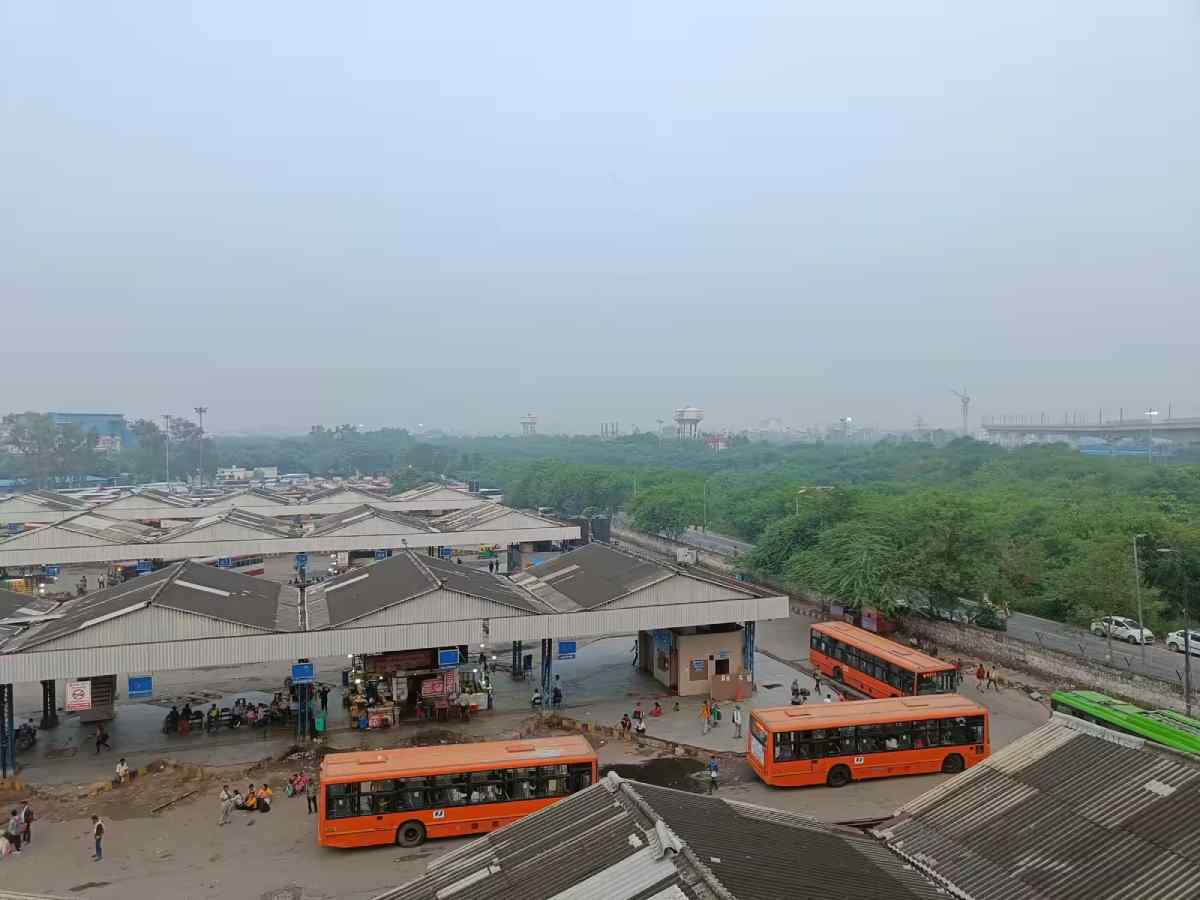
Delhi: At the heart of Delhi’s bustling Inter-State Bus Terminals (ISBTs) — Anand Vihar, Kashmere Gate, and Sarai Kale Khan — where lakhs of passengers pass through every day, the ones who keep the system running are being quietly crushed by neglect.
Bus drivers, the backbone of Delhi’s long-distance public trans port system, are fighting daily battles — not with traffic or fatigue alone, but with the sheer lack of basic human dignity. These men, who spend up to 14–16 hours a day on the roads, are forced to sleep inside stifling buses, deprived of clean washrooms, drinking water, and even a modest place to rest their tired bodies.
“Hum aadmi nahi hai kya? (‘Are we not human?’)” asks Rajbir Singh, a driver on the Punjab Delhi route. “We bring thousands of people safely to Delhi every day, but when it’s time to rest, we have nowhere to go. The toilets are filthy, there’s no water, and not even a fan to lie under.”
Also read: Delhi: ISBTs crumble under heat, neglect and official apathy
Scorching buses, not rest rooms
At Anand Vihar ISBT, drivers are seen resting inside their buses, using rolled-up towels as pillows and newspaper sheets as make shift curtains to shield themselves from the harsh sun. Inside the metal-bodied vehicles, temperatures soar above 45°C in peak summers. Yet, this is the only space they get to rest between trips.
“There’s no rest room for drivers. If we’re lucky, we find a little shade. Otherwise, we sleep in the bus with the engine off — it turns into an oven,” says Mohammed Yunus, who has been driving the Delhi Jharkhand route for 11 years. “We sweat for hours. Even animals are treated better.”
Despite promises of improved facilities at Delhi’s ISBTs, drivers say nothing has changed in years. The few toilets available are either bro ken, overflowing, or in unhygienic conditions that are unfit for use.
If we use these toilets, we risk infections. But what choice do we have? There’s no running water, no cleaning staff, no maintenance,” adds Yunus.
No water, no dignity
Clean drinking water is another basic amenity that remains elusive. At Kashmere Gate ISBT, drivers often fill bottles from leaking pipes or buy overpriced bottled water out of desperation.
“There are water coolers, but they’ve not worked in months. We drink what we can find, but even that’s risky,” says Surender Rawat, a driver from Himachal. “There have been days when I’ve driven for 10 hours straight without a sip of clean water.”
The absence of clean water not only impacts their health but also raises the risk of dehydration, kidney problems, and chronic fatigue — issues that are not being addressed by the authorities.
Systemic neglect and official apathy
In 2024, Lieutenant Governor Vinai Kumar Saxena had ordered a complete overhaul of Delhi’s ISBT infrastructure. But even months later, the situation on the ground for drivers remains grim.
While announcements were made to install new rest areas and maintain hygiene facilities for both passengers and drivers, nothing substantial has been executed.
“They build lounges for VIPs, but where are the basics for us?” asks Sandeep Bhati, who has been driving on the Delhi–Uttarakhand route for 15 years. “All we ask for is a clean place to sit, a fan, a working toilet, and clean water. Is that too much?”
Many drivers complain that they are treated like invisible labour — crucial to the functioning of public transport, but forgot ten when it comes to policy or facilities.
The hidden cost of exhaustion
Poor rest, dehydration, and unsanitary conditions do not just affect drivers — they affect public safety. A tired, sleepless driver is more prone to accidents, slower in reaction time, and at higher risk of health emergencies while on duty.
“Imagine driving overnight, not sleeping properly, and then getting back behind the wheel without rest or water. We’re risking our lives, and others’ too,” warns Surender Rawat.
Also read: Lodhi Colony at 80: Where nostalgia lives in brick and paint
What needs to change
Delhi’s ISBTs cannot be called world-class transport hubs until they serve everyone — not just passengers, but also the drivers and conductors who keep the wheels turning.
A designated rest room with beds, fans, clean toilets, and water facilities for drivers is not just a humane step — it is a critical need. Regular cleaning, maintenance, and 24×7 access should be part of the ISBT infrastructure.
Until then, the irony will continue — that in the national capital of India, the men who drive its people forward have nowhere to lie down.
Delhi hosted what organisers describe as the world’s first player auction in golf, launching ‘72…
An elderly woman recalls how her six-year-old granddaughter lay bleeding after a speeding car hit…
Municipal Corporation of Delhi plans a unified policy enabling RWAs to adopt and maintain parks…
A 17-year-old boy allegedly died by suicide after jumping before a moving train at Uttam…
Delhi High Court grants bail to 26-year-old Thar driver accused of mowing down two in…
Two Rohini men arrested for fatally stabbing one person and injuring another during a robbery…